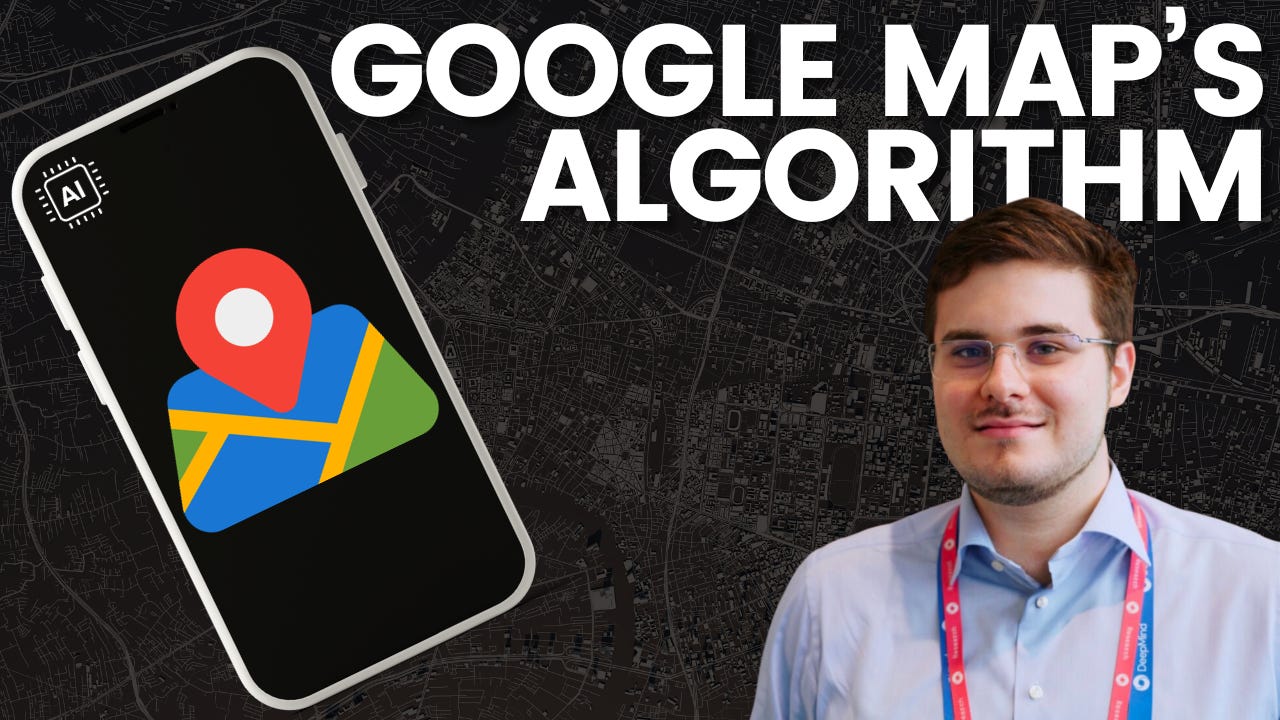Petar Veličković on How He built AI for Google Maps with Google Deepmind!
An amazing extract from the What's AI Podcast!
Good morning fellow AI enthusiasts! First, if you are not a follower of the podcast on Spotify, Apple podcasts, or whatever platform you are using, find the What’s AI Podcast by Louis Bouchard! Of course, the episodes are also available on my YouTube! There are dozens of interviews lined up for you to learn more about how amazing people build unique AI-based products and research. I’ve already recorded some of them, and I can promise you: you don’t want to miss out on those!
In this iteration, if you have ever wondered how Google Maps predicts your travel time, here it is! Here’s an excerpt of my episode with Petar Veličković, focusing on how he built the Google Maps time travel prediction algorithm while working at Google Deepmind. The process involves a complex algorithm with underlying research powered by AI. Let's take a behind-the-scenes look at how it works:
🚀 Making the leap from pure research to real-world application can be a transformative experience. When developing an algorithm for Google Maps, it means moving from theoretical discussions to encountering and solving real-world challenges.
📲 The goal? Developing a system that accurately predicts your estimated travel time from point A to point B. If you've ever ordered food online or requested a ride through an app, you've likely interacted with a version of this system developed at Google DeepMind.
🚧 It goes beyond a simple pathfinding problem. Google Maps' predictions account for dynamically changing conditions such as weather, roadblocks, and traffic lights. Even the data, collected from phone positions, is susceptible to noise and adversarial behavior.
🌎 The algorithm needs to function in real-time and on a global scale, serving billions of users without slowing down. It's about finding a balance between speed and accuracy. Ultimately, users care more about receiving quick responses than precision down to the minute.
This process enhances our perception of AI research. While core research is crucial, realizing its real-world effects and applying results in functional settings can optimize positive impact.
Learn more in the video. Listen to the full episode on Spotify or Apple podcasts!
We are incredibly grateful that the newsletter is now read by over 13'000+ incredible human beings counting our email list and LinkedIn subscribers. Reach out to contact@louisbouchard.ai with any questions or details on sponsorships or visit my Passionfroot profile. Follow our newsletter at Towards AI, sharing the most exciting news, learning resources, articles, and memes from our Discord community weekly.
If you need more content to go through your week, check out the podcast!
Thank you for reading, and we wish you a fantastic week! Be sure to have enough rest and sleep!
Louis





